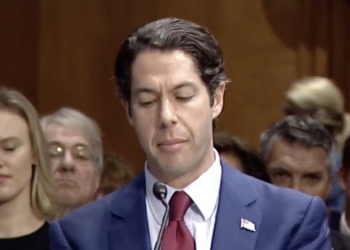Matthew Elliott is President of the Jobs Foundation and a member of the House of Lords.
As MPs head off for the summer recess, they do so against the backdrop of yet another concerning set of employment figures from the Office for National Statistics. Since last year’s general election, nearly two hundred thousand people have fallen out of payrolled employment. Unemployment is beginning to rise, vacancies have fallen for 36 consecutive months, and GDP per capita is in decline (as it has been for some time).
These aren’t just dry, economic statistics. As well as an income, jobs give people structure and stability, a way of furthering their skills and interests, and a broader sense of pride and purpose in life. Jobs are also the best tool that we have for alleviating poverty and boosting social mobility. This is why people falling out of the workforce is so damaging.
MPs are not unfamiliar to job insecurity – that comes with the territory of being an elected representative. But the rise in unemployment and the continued drift of people out of the labour market must prompt reflection. MPs and ,inisters must ask themselves whether decisions that they have made are contributing to people losing their livelihoods, and what they will do about this once they once again descend en masse back to Westminster in September.
No one, whatever their politics, wants to see a rise in unemployment. But it is increasingly difficult to argue that the current trend is anything other than the direct result of policy choices made by the Government. Last year’s Budget, with the catastrophic hike to Employers’ NICs, and the looming threat of the Employment Rights Bill, have given businesses a mounting set of costs, without enough supply-side reforms to credibly reduce costs.
This isn’t just an economic problem, it’s a political one. The Government’s own stated number one priority is to “boost economic growth”, yet the warning signs are flashing red. There is a growing acceptance that the Chancellor will return in the Autumn Budget with yet more tax rises (despite her repeated pledges to business that she would “not come back with more borrowing or more taxes”) in an effort to fill the fiscal hole that has developed over the past year.
Inevitably, this will have the same impact on economic growth and job creation that the past round of tax rises have had. Where, then, lies the answer?
The only way to avoid more growth-destroying tax rises is through welfare reform and getting more people back to work. Since Covid, nearly 800,000 more people are economically inactive. DWP sickness benefit caseload is projected to increase from 2.2m in 2019, to over 4m by 2030. Spend on disability and sickness benefits is set to reach £100bn by the end of the decade.
In truth, the Chancellor’s failed attempt to cut £5bn from the welfare bill is all but a drop in the ocean compared to what is truly needed to grasp the ballooning welfare spend. This is why the Government’s mission to ‘Get Britain Working’, boosting the employment rate to 80 per cent and bring in two million more people to the workplace, is so vital.
Tackling welfare and getting Britain working shouldn’t be seen a party-political matter, but instead as a national mission. Labour grandee Alan Milburn recently stated that the Government cannot afford to “run away” from tackling the growing scourge of worklessness.
But Milburn is also right when he states that welfare cannot simply be a source of savings to help meet fiscal rules; his work with Barnsley Council and the Pathways to Work Commission provides a blueprint on how we can support people with long-term conditions from welfare into work. At the Jobs Foundation, we’re also looking forward to showcasing some of the best examples of businesses supporting people from different disadvantaged groups into employment in a new report – Ladders of Opportunity – being published in September.
But businesses are only able to do this if they have a policy environment that allows them to prosper. If, as rumoured, the Chancellor announces a raft of tax hikes on businesses in the Autumn, their ability to create jobs and training opportunities that get people on that ladder of opportunity will be dashed.
Instead, the Chancellor must come to the despatch box to deliver her next Budget, armed with a serious plan for jobs. One solution is a targeted break to Employers’ NICs for businesses hiring people from long-term unemployment or economic inactivity. Another could be Skills Tax Relief, which would help businesses cover the cost of training and upskilling young people at the start of their careers.
Without some basic measures along these lines, we risk making it all but impossible for businesses to do the vital job of taking people from inactivity and welfare into work.



![Former Bravo Star Charged After Violent Assault Using a Rock-Filled Sock in Tennessee Walmart [WATCH]](https://www.right2024.com/wp-content/uploads/2025/07/Former-Bravo-Star-Charged-After-Violent-Assault-Using-a-Rock-Filled-350x250.jpg)



![Illegal Alien Walked Free After Decapitating Woman, Abusing Corpse for Weeks [WATCH]](https://www.right2024.com/wp-content/uploads/2025/07/1753013138_Illegal-Alien-Walked-Free-After-Decapitating-Woman-Abusing-Corpse-for-350x250.jpg)
![NYC Man Snatches Child Off The Sidewalk, Parents Chase Him Down [WATCH]](https://www.right2024.com/wp-content/uploads/2025/07/NYC-Man-Snatches-Child-Off-The-Sidewalk-Parents-Chase-Him-350x250.jpg)
![Man Arrested After Screaming at Senators During Big Beautiful Bill Debate [WATCH]](https://www.right2024.com/wp-content/uploads/2025/06/Man-Arrested-After-Screaming-at-Senators-During-Big-Beautiful-Bill-350x250.jpg)
![Karoline Leavitt Levels CNN's Kaitlan Collins and Other Legacy Media Reporters [WATCH]](https://www.right2024.com/wp-content/uploads/2025/07/Karoline-Leavitt-Levels-CNNs-Kaitlan-Collins-and-Other-Legacy-Media-350x250.jpg)
![Leftists Lose Their Minds After Jason Kelce Celebrates Being an American [WATCH]](https://www.right2024.com/wp-content/uploads/2025/07/Leftists-Lose-Their-Minds-After-Jason-Kelce-Celebrates-Being-an-350x250.jpg)




